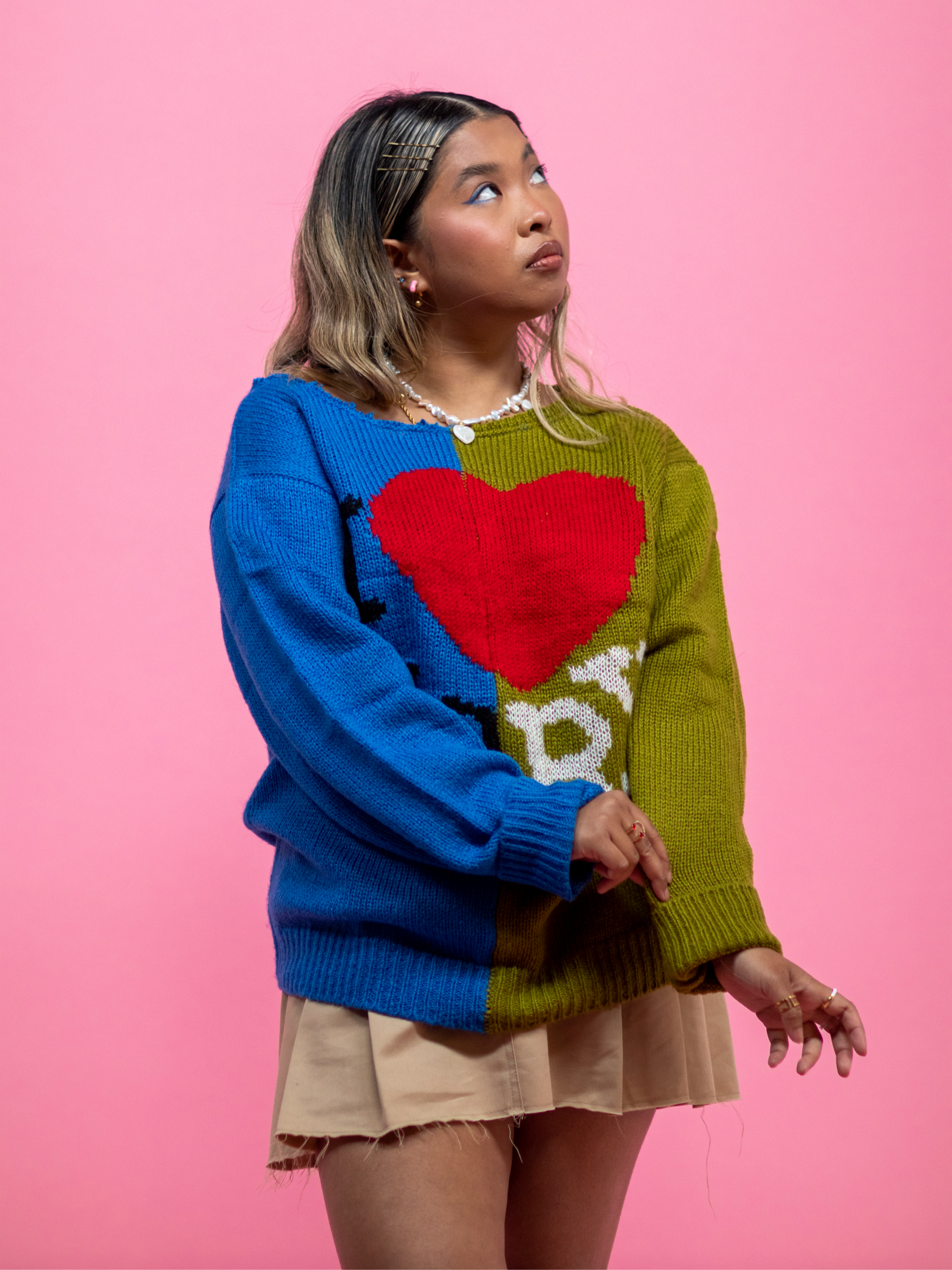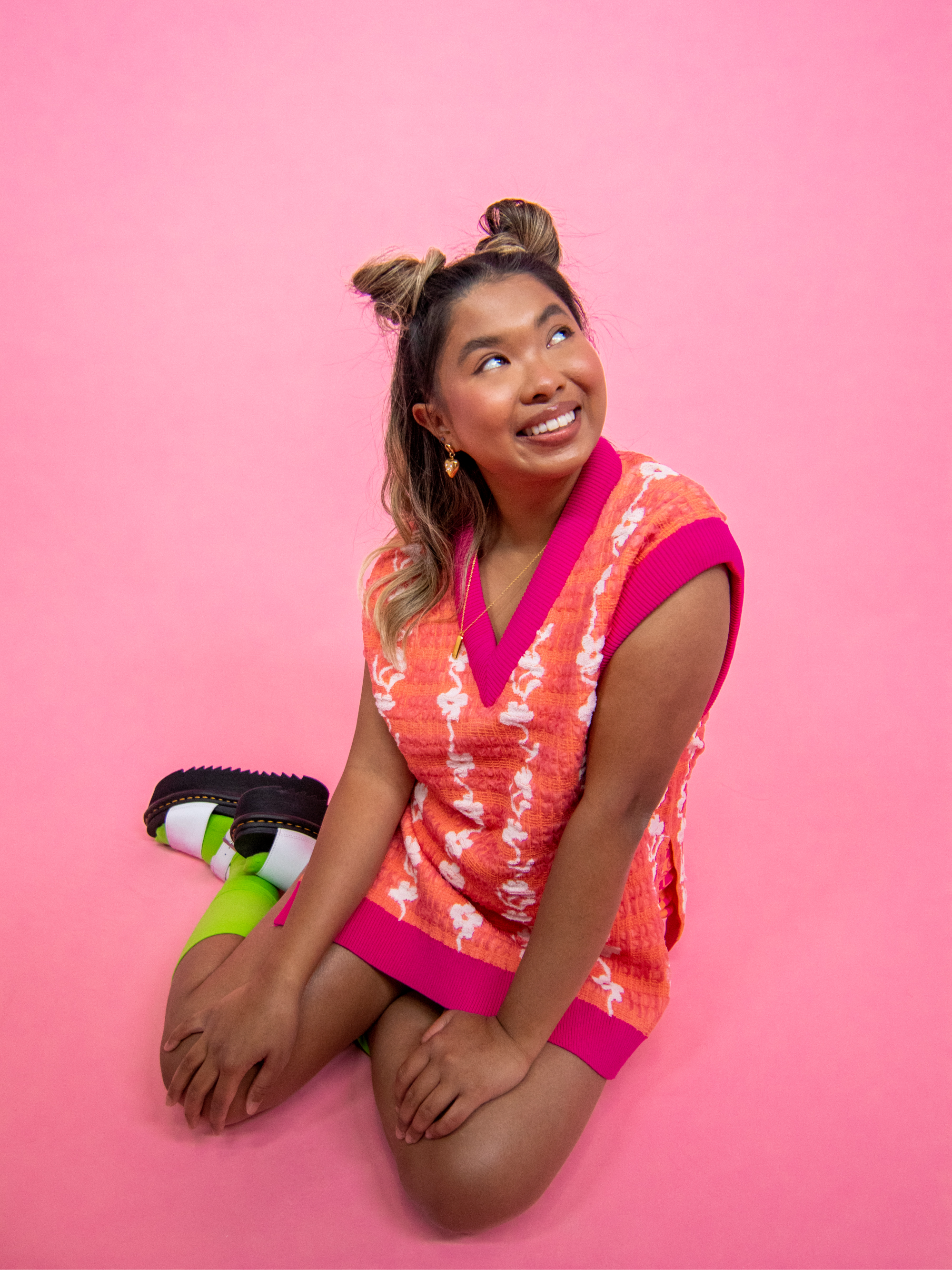Somatic activated healer and coach challenges colonial mindsets through emotional self-care
As a queer somatic activated healer, coach, creative and space-holder, Kim Saira (she/they) centers emotional healing and embodiment through her 12-week coaching cohort called Authentically U. The space welcomes an intimate circle of Asian women and femmes seeking to embrace vulnerability, connect with their intuition and learn about their unique ancestral roots. Decolonization, healing, and how they can be integrated into one’s work and personal life are at the forefront of group discussions.
“We cannot heal alone. We cannot do human existence alone,” Saira said.
Somatic activated healing, which means “healing through the body,” was coined by mystic and yogi Sah D’Simone. The method uses four modalities namely meditation, breathwork, speaking affirmations, and ecstatic dance. During therapy sessions, Saira discourages intellectualization and speaking so participants can fully embrace and release the feelings flowing through their bodies.
“Because we’re healing from the body, we can recognize that we have emotional baggage stored,” Saira said. “The reason why this work really fascinated me was because I was tired of talking about my problems all the time.”
Saira highlighted how living in a capitalist society which values profits over people and prioritizes individual interests instead of the community can have negative effects on mental health. This is perpetuated through social media with narratives and images depicting an unrealistic and idealized view of people's lives and their experiences.
“There are deep capitalistic wounds that tell us that our worth is connected to how much we work and how much we earn,” Saira said.
According to Saira, such wounds connect to the concept of the crab mentality in Filipino culture. This phenomenon, deeply rooted in colonial mentality, can be understood through the image of crabs in a bucket. Individuals on the path to success are likened to crabs climbing to the top but find themselves pulled down by other crabs still reaching for their achievements.
“A lot of people in the Filipino community will celebrate someone who has already made it. Everyone else who’s just trying to get their foot out the door, it’s very easy for us to criticize and pull them down,” Saira said.
Adopting a crab mentality has consequences and can lead to self-doubt and insecurity in pursuing one’s dreams and ambitions. Saira emphasizes the need to prioritize emotional self-care and seek healing outside of colonial ideas and beliefs that have historically caused divisions between communities and community members. She encourages practicing “loob,” a Tagalog word that refers to one’s inner self “inside” or more spiritually as “the soul’s purpose.”
Opening up about her childhood struggles with anxiety and sadness, Saira recognized that while she had difficulty initiating conversations with her parents about her feelings, they were only doing the best they could at the time.
“A lot of my healing journey is realizing that my parents can only meet me at the extent of their healing,” Saira said. “That’s a really hard truth for a lot of kids of immigrants, that our parents can’t probably meet us halfway.”
Through the guidance of a fellow Filipina therapist, Saira has been able to set boundaries with her family members. She learned that healing takes time and the importance of gaining the tools and wisdom necessary to improve mental well-being within themselves and among those around them.
While Saira has not come out to her family as a queer, pansexual woman, she remains grounded in her authentic self. She found that embracing her identity and expression became a much more beautiful journey when surrounded by a supportive network and chosen family, regardless of blood ties.
“When I think of Pride, I think of feeling safe in my body, feeling safe to be who I am, with the people that love me and the people that will nurture my best self,” Saira said. “I encourage everyone, no matter who you are, even if you are closeted, to find those people for you.”



